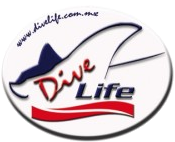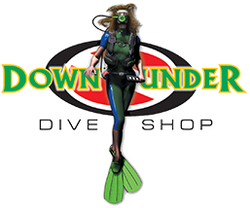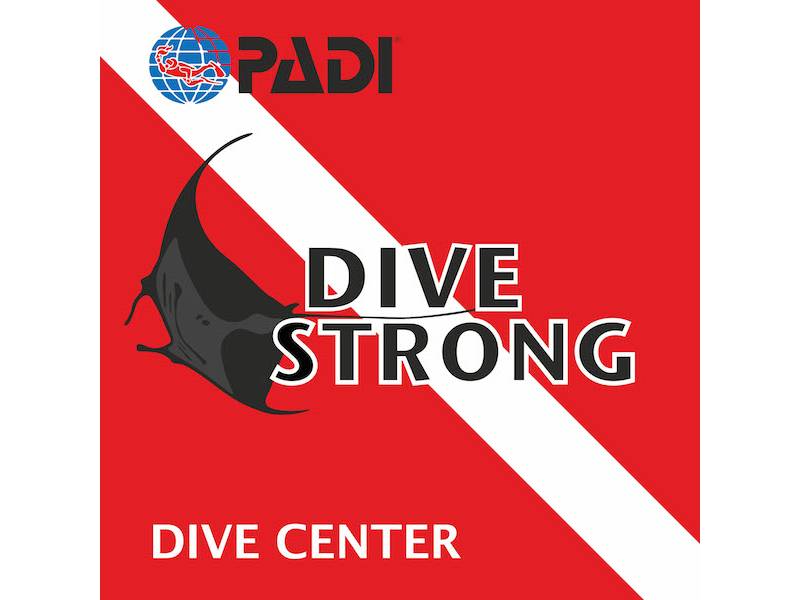Jill Heinerth. Photo: Courtesy of Jill Heinerth
OUTSIDE ONLINE
FRIDAY, DECEMBER 14, 2012
MY PERFECT ADVENTURE: JILL HEINERTH The world’s top female underwater explorer, whose ideal day would be spent below sea level, tells us what it’s like to skirt death for a living, why she reveres Ernest Shackleton, and that Libya’s on her bucket list
By: AVITAL ANDREWS
My Perfect Adventure The world's best athletes and biggest names in exploration open up.
Cave diver Jill Heinerth sold everything she owned to get away from office life and become an underwater explorer. The gamble paid off: She’s now considered by many to be the best female scuba diver in the world. Her records include being the first person in the caves of Antarctic icebergs, going farther into an underwater cave than any other woman ever, and being the first human to visit many underwater places. When the Women Divers Hall of Fame was established in 2000, she was among the inaugural inductees.
Heinerth is also a writer, a photographer, and a producer. She wrote three books about deep caving and underwater photography and has made TV series and documentaries for PBS, National Geographic, and the BBC. The aquanaut works as an underwater consultant for Hollywood movies—having helped James Cameron and other big-name directors—and for manufacturers that develop new diving technologies. As a keynote speaker, she holds forth on risk assessment among other topics.
Over the course of her many expeditions, she developed a deep and abiding devotion to conservation. Her upcoming documentary, We Are Water, is about how fresh water is vital to human life. Here, Heinerth discusses her We Are Water Project, extols the virtues of failure, tells of how Jacques Cousteau and Sylvia Earle inspired her, and ruminates on how photography just might convince others that they, too, can do the seemingly impossible.
Describe your perfect day, from dawn 'til dusk. Where would you be, who would you meet, and what would you do?
I am in my element when I am swimming through the veins of Mother Earth, exploring the planet’s shadowy recesses. The ominous doorways of underwater caves repel most people but I am attracted to the constricted corridors and relying on delicate technology for every sustaining breath. So my perfect day would begin by tinkering with my life-support gear and cameras, preparing to shed light on some unexplored cave. There are a few people with whom I trust my life and though some of my exploration work is solo, sharing moments with these special few is fantastic. Drinking coffee and carefully knotting line for our survey reels, we'd dream of vast rock cathedrals decorated with intricate marvels. Emptying reels into the dark corridors, we'd swim through some of the most stunning galleries imaginable. Bringing home the survey and photos would end the day on the highest note.
If you could travel somewhere you've never been, where would you go and why?
Though the political climate makes it challenging, I want to explore springs in Libya. The Nubian Aquifer lies below the Western Desert and I have explored some of the desert oases on the Egyptian side of the border, but there is great promise for cave exploration in resurgence springs on the other side. I'm also eager to explore some of the great Karst regions of China and the submerged caves that dot their landscape.
Where is the best place you've ever visited? What made it so special?
The most remarkable expedition of my life was to Antarctica. We departed from New Zealand in a small boat, following Shackleton's historic route to the Ross Ice Shelf. Our plan was to intercept the largest moving object on the planet, the B15 iceberg, and be the first people to dive inside the caves within this massive piece of ice.
Traveling to Antarctica is like going to another planet. Taking the 12-day voyage to the Ross Sea is just as dangerous: Even before reaching our destination, we battled 60-foot seas, got frozen in the pack ice, and faced unimaginable risk. When we launched our cave-diving and science program, the risks got even greater. I'm very proud of having stayed safe in such a challenging environment and thrilled to have had such a unique opportunity to take a look at the realities of global climate change.
If you could have lunch with any adventurer or explorer, living or dead, who would it be and why?
Ernest Shackleton. He was one of the greatest leaders our world has ever known. In the face of desperate challenges, he led his team to safety after losing their vessel to the clutches of the Ross Sea pack ice. Few of us could imagine living outdoors for two years, but he took his entire crew across the Southern Ocean to South Georgia with few supplies and barely adequate clothing. His bravery saved his team from almost certain death.
What’s something you can’t travel without? And why do you need it?
I simply can't travel without a camera. In kindergarten, I loved show and tell, and I suppose I never lost the love of sharing what I’ve seen or done. The experiences I have during expeditions can be difficult to fully describe. By sharing photos and films of my work, I get the chance to inspire people to take things on that might otherwise seem impossible.
When you arrive somewhere new, what’s usually first on your agenda?
I seek out indigenous people and humbly try to make a friend who might offer key local knowledge. Whether I know the language or not, I try to find someone willing to take part in my adventure by being a guide or a sherpa or simply helping me understand a new culture. If you give people respect, they will give you so much more in exchange. It’s a very small world and ultimately we all have more in common than not. When I have brought local people onto my team, they have responded with incredible generosity and made my trips unforgettable.
What motivates you to keep diving?
Sometimes I think I am more comfortable underwater than on the surface. Gravity is not really my friend. I've gone over the handlebars of my bicycle, fallen off my motorcycle, and rolled my van on the way to an expedition. Despite the fact that some call cave diving the world's most dangerous sport, I find great peace underwater. Perhaps I am having separation anxiety from the womb. Some of us water babies find that bond tougher to break than others.
As a child, what was your dream job? If you gave up that dream, when and why did your plans change, and do you have any regrets?
I wanted to be an astronaut. I recall seeing the lunar rover zipping around on the moon as a young kid at school, watching the excitement play out on a crackling black-and-white television. While other kids fidgeted, I was riveted. Early on, I was told that girls could not be astronauts—and no space traveler came from my Canadian homeland. Watching Jacques Cousteau on TV, I thought that might the next best thing. I shifted my dreams to becoming an aquanaut, exploring new frontiers underwater.
When and how did you get into underwater exploration?
My first career was in graphic design and advertising. I had a successful business by day but was spending every night and weekend teaching scuba and traveling to Tobermory to dive the remarkable shipwrecks in Lake Huron. I simply had to find a way to mix my two loves of creativity and the undersea world. So I sold my business and everything I owned and packed my dive gear and camera and moved to the Cayman Islands to try to make that dream a reality. I began exploring caves in the islands and started traveling to the U.S. to refine my skills. Finally, after three years, I moved to northern Florida, a cave diver's mecca. In 1995, I participated in an exploration project led by Dr. Bill Stone and knew this was the course I wanted to follow. Every opportunity since then has been a product of volunteering and working hard to take on new challenges.
What's one piece of advice you would give to an aspiring explorer?
Get used to embracing failure. It’s an important facet of exploration. We learn a lot from failure, and it often leads us in new directions that bring better opportunities.
It’s also important to be able to get within a hair's breadth of your goal and turn away from the prize in order to save your life. Some would call that failure, but I think a more apt name for it is survival. There will always be another day and if you are going to play this game, you have to understand and respect limits.
My life depends on finding the finite balance between fear and discovery. A bad decision, and my name and legacy would be added to the long list of cave divers who have perished in the seductive blackness. I've written far too many eulogies and even had to recover the bodies of friends from the dark recesses. I hope I can honor their lives by learning from their mistakes.Who has been your most influential role model or mentor? What did he or she teach you?
Dr. Sylvia Earle has been a huge role model—she pushed the bounds of a predominately male endeavor. Though small in stature, she is enormous in dreams. Never taking no for an answer, she furthered technology, influenced important environmental policies, and made countless contributions to science and discovery. Years ago, I had the opportunity to introduce Earle to the Cis-Lunar MK5 rebreather. She accompanied me into a muddy bay on a stormy day and, despite the poor visibility, she took advantage of every available moment because she loved being underwater. Even in the worst conditions, her heart was filled with the joy and potential of discovering something rare or new. She embodies the raw passion that you feel when you are doing the one thing in life that makes you whole.
Do you have a life philosophy?
I believe that nothing is impossible and that the only barriers are the ones within our own imagination. If we look at exploration as a great puzzle, then we only need to put together the right pieces to make the picture whole.
Have you ever made a mistake or experienced a near accident that made you think twice about getting that far underwater again?
A couple of years ago, I had a harrowing dive during which my buddy was wedged in a tight space in front of me. With my exit blocked and our guideline broken, I wasn’t sure I was coming home that night. In the darkness of silt, I lost track of my dive partner and had to retreat back into the murk to make sure I wasn’t leaving her behind. While patching the broken guideline, I made a slow and careful search of the cave, throttling a failing air supply on and off with every breath. It took every bit of concentration and control I could muster. I emerged from the cave more than an hour after she’d successfully made it out. I was relieved that she was safe—and am not sure if I’d still be cave diving if we had not both made it out.
If you had to choose a different career, what would it be and why?
Besides dying, there are a lot of other risks that could end a diving career. I've had to think about what I would do if I was not able to dive anymore. If I had unlimited time and resources, there are scientific avenues I would like to explore, but I would also want to spend more time furthering my We Are Water Project. The wars of the next century will be fought over water rather than oil. Teaching basic water literacy is important for the masses—we all need to know where our water comes from, how we pollute it, and how we can preserve it for future generations.
What are three things you still want to cross off your bucket list?
I'm going to cross one item off my bucket list next summer when my husband and I ride our bicycles more than 4,600 miles across Canada unsupported. But I would still like to dive in the Galapagos Islands, dive into the Marianas Trench, and pilot a Newt Suit, which is a one-atmosphere articulated swimmable submarine.
OUTSIDE ONLINE
FRIDAY, DECEMBER 14, 2012
MY PERFECT ADVENTURE: JILL HEINERTH The world’s top female underwater explorer, whose ideal day would be spent below sea level, tells us what it’s like to skirt death for a living, why she reveres Ernest Shackleton, and that Libya’s on her bucket list
By: AVITAL ANDREWS
My Perfect Adventure The world's best athletes and biggest names in exploration open up.
Cave diver Jill Heinerth sold everything she owned to get away from office life and become an underwater explorer. The gamble paid off: She’s now considered by many to be the best female scuba diver in the world. Her records include being the first person in the caves of Antarctic icebergs, going farther into an underwater cave than any other woman ever, and being the first human to visit many underwater places. When the Women Divers Hall of Fame was established in 2000, she was among the inaugural inductees.
Heinerth is also a writer, a photographer, and a producer. She wrote three books about deep caving and underwater photography and has made TV series and documentaries for PBS, National Geographic, and the BBC. The aquanaut works as an underwater consultant for Hollywood movies—having helped James Cameron and other big-name directors—and for manufacturers that develop new diving technologies. As a keynote speaker, she holds forth on risk assessment among other topics.
Over the course of her many expeditions, she developed a deep and abiding devotion to conservation. Her upcoming documentary, We Are Water, is about how fresh water is vital to human life. Here, Heinerth discusses her We Are Water Project, extols the virtues of failure, tells of how Jacques Cousteau and Sylvia Earle inspired her, and ruminates on how photography just might convince others that they, too, can do the seemingly impossible.
Describe your perfect day, from dawn 'til dusk. Where would you be, who would you meet, and what would you do?
I am in my element when I am swimming through the veins of Mother Earth, exploring the planet’s shadowy recesses. The ominous doorways of underwater caves repel most people but I am attracted to the constricted corridors and relying on delicate technology for every sustaining breath. So my perfect day would begin by tinkering with my life-support gear and cameras, preparing to shed light on some unexplored cave. There are a few people with whom I trust my life and though some of my exploration work is solo, sharing moments with these special few is fantastic. Drinking coffee and carefully knotting line for our survey reels, we'd dream of vast rock cathedrals decorated with intricate marvels. Emptying reels into the dark corridors, we'd swim through some of the most stunning galleries imaginable. Bringing home the survey and photos would end the day on the highest note.
If you could travel somewhere you've never been, where would you go and why?
Though the political climate makes it challenging, I want to explore springs in Libya. The Nubian Aquifer lies below the Western Desert and I have explored some of the desert oases on the Egyptian side of the border, but there is great promise for cave exploration in resurgence springs on the other side. I'm also eager to explore some of the great Karst regions of China and the submerged caves that dot their landscape.
Where is the best place you've ever visited? What made it so special?
The most remarkable expedition of my life was to Antarctica. We departed from New Zealand in a small boat, following Shackleton's historic route to the Ross Ice Shelf. Our plan was to intercept the largest moving object on the planet, the B15 iceberg, and be the first people to dive inside the caves within this massive piece of ice.
Traveling to Antarctica is like going to another planet. Taking the 12-day voyage to the Ross Sea is just as dangerous: Even before reaching our destination, we battled 60-foot seas, got frozen in the pack ice, and faced unimaginable risk. When we launched our cave-diving and science program, the risks got even greater. I'm very proud of having stayed safe in such a challenging environment and thrilled to have had such a unique opportunity to take a look at the realities of global climate change.
If you could have lunch with any adventurer or explorer, living or dead, who would it be and why?
Ernest Shackleton. He was one of the greatest leaders our world has ever known. In the face of desperate challenges, he led his team to safety after losing their vessel to the clutches of the Ross Sea pack ice. Few of us could imagine living outdoors for two years, but he took his entire crew across the Southern Ocean to South Georgia with few supplies and barely adequate clothing. His bravery saved his team from almost certain death.
What’s something you can’t travel without? And why do you need it?
I simply can't travel without a camera. In kindergarten, I loved show and tell, and I suppose I never lost the love of sharing what I’ve seen or done. The experiences I have during expeditions can be difficult to fully describe. By sharing photos and films of my work, I get the chance to inspire people to take things on that might otherwise seem impossible.
When you arrive somewhere new, what’s usually first on your agenda?
I seek out indigenous people and humbly try to make a friend who might offer key local knowledge. Whether I know the language or not, I try to find someone willing to take part in my adventure by being a guide or a sherpa or simply helping me understand a new culture. If you give people respect, they will give you so much more in exchange. It’s a very small world and ultimately we all have more in common than not. When I have brought local people onto my team, they have responded with incredible generosity and made my trips unforgettable.
What motivates you to keep diving?
Sometimes I think I am more comfortable underwater than on the surface. Gravity is not really my friend. I've gone over the handlebars of my bicycle, fallen off my motorcycle, and rolled my van on the way to an expedition. Despite the fact that some call cave diving the world's most dangerous sport, I find great peace underwater. Perhaps I am having separation anxiety from the womb. Some of us water babies find that bond tougher to break than others.
As a child, what was your dream job? If you gave up that dream, when and why did your plans change, and do you have any regrets?
I wanted to be an astronaut. I recall seeing the lunar rover zipping around on the moon as a young kid at school, watching the excitement play out on a crackling black-and-white television. While other kids fidgeted, I was riveted. Early on, I was told that girls could not be astronauts—and no space traveler came from my Canadian homeland. Watching Jacques Cousteau on TV, I thought that might the next best thing. I shifted my dreams to becoming an aquanaut, exploring new frontiers underwater.
When and how did you get into underwater exploration?
My first career was in graphic design and advertising. I had a successful business by day but was spending every night and weekend teaching scuba and traveling to Tobermory to dive the remarkable shipwrecks in Lake Huron. I simply had to find a way to mix my two loves of creativity and the undersea world. So I sold my business and everything I owned and packed my dive gear and camera and moved to the Cayman Islands to try to make that dream a reality. I began exploring caves in the islands and started traveling to the U.S. to refine my skills. Finally, after three years, I moved to northern Florida, a cave diver's mecca. In 1995, I participated in an exploration project led by Dr. Bill Stone and knew this was the course I wanted to follow. Every opportunity since then has been a product of volunteering and working hard to take on new challenges.
What's one piece of advice you would give to an aspiring explorer?
Get used to embracing failure. It’s an important facet of exploration. We learn a lot from failure, and it often leads us in new directions that bring better opportunities.
It’s also important to be able to get within a hair's breadth of your goal and turn away from the prize in order to save your life. Some would call that failure, but I think a more apt name for it is survival. There will always be another day and if you are going to play this game, you have to understand and respect limits.
My life depends on finding the finite balance between fear and discovery. A bad decision, and my name and legacy would be added to the long list of cave divers who have perished in the seductive blackness. I've written far too many eulogies and even had to recover the bodies of friends from the dark recesses. I hope I can honor their lives by learning from their mistakes.Who has been your most influential role model or mentor? What did he or she teach you?
Dr. Sylvia Earle has been a huge role model—she pushed the bounds of a predominately male endeavor. Though small in stature, she is enormous in dreams. Never taking no for an answer, she furthered technology, influenced important environmental policies, and made countless contributions to science and discovery. Years ago, I had the opportunity to introduce Earle to the Cis-Lunar MK5 rebreather. She accompanied me into a muddy bay on a stormy day and, despite the poor visibility, she took advantage of every available moment because she loved being underwater. Even in the worst conditions, her heart was filled with the joy and potential of discovering something rare or new. She embodies the raw passion that you feel when you are doing the one thing in life that makes you whole.
Do you have a life philosophy?
I believe that nothing is impossible and that the only barriers are the ones within our own imagination. If we look at exploration as a great puzzle, then we only need to put together the right pieces to make the picture whole.
Have you ever made a mistake or experienced a near accident that made you think twice about getting that far underwater again?
A couple of years ago, I had a harrowing dive during which my buddy was wedged in a tight space in front of me. With my exit blocked and our guideline broken, I wasn’t sure I was coming home that night. In the darkness of silt, I lost track of my dive partner and had to retreat back into the murk to make sure I wasn’t leaving her behind. While patching the broken guideline, I made a slow and careful search of the cave, throttling a failing air supply on and off with every breath. It took every bit of concentration and control I could muster. I emerged from the cave more than an hour after she’d successfully made it out. I was relieved that she was safe—and am not sure if I’d still be cave diving if we had not both made it out.
If you had to choose a different career, what would it be and why?
Besides dying, there are a lot of other risks that could end a diving career. I've had to think about what I would do if I was not able to dive anymore. If I had unlimited time and resources, there are scientific avenues I would like to explore, but I would also want to spend more time furthering my We Are Water Project. The wars of the next century will be fought over water rather than oil. Teaching basic water literacy is important for the masses—we all need to know where our water comes from, how we pollute it, and how we can preserve it for future generations.
What are three things you still want to cross off your bucket list?
I'm going to cross one item off my bucket list next summer when my husband and I ride our bicycles more than 4,600 miles across Canada unsupported. But I would still like to dive in the Galapagos Islands, dive into the Marianas Trench, and pilot a Newt Suit, which is a one-atmosphere articulated swimmable submarine.
Jill Heinerth and Robert McClellan will be presenting We Are Water - May 28 2013, 7 PM at Genesis Place, Airdrie AB. Contact Leisure Dive Canada 403-980-3483 to reserve your seat! It's Free!
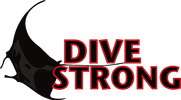
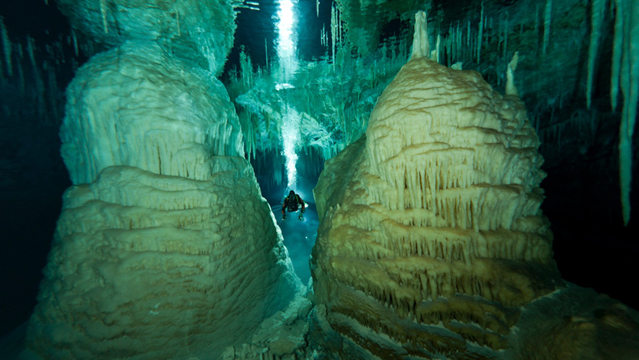
 RSS Feed
RSS Feed
